X
You can quickly leave this website by clicking the "Exit" button in the top right or by pressing the Escape key twice. Internet usage can be monitored and can be difficult to fully erase. If you have safety concerns remember to clear your browser history after visiting this site. The National Domestic Violence Hotline has advocates available 24/7 at 800.799.SAFE (7233) or thehotline.org.


Defense-Based Advocacy- Part 2: Increasing Safety, Preserving Legal Rights and Options - Webinar On-demand
- English
- Estimated Time: 1 hours 30 minutes
This webinar is part two of a three-part professional development series for community-based advocates, attorneys who work with victims of battering, and anyone interested in learning more about survivors charged with crimes. Facilitated by Cindene Pezzell, Director of the National Defense Center for Criminalized Survivors at BWJP. Participants will learn how to define defense-based advocacy, explore why a defense perspective is necessary when working with charged and incarcerated victims and survivors at risk of arrest, review unique risks faced by victim defendants and perform concrete defense-based advocacy strategies.
Funding for this project was made available through the US Department of Health and Human Services, Grant # 90EV0528. The viewpoints contained in this document are solely the responsibility of the author(s) and do not represent the official views or policies of the department and do not in any way constitute an endorsement by the Department of Health and Human Services.
Free
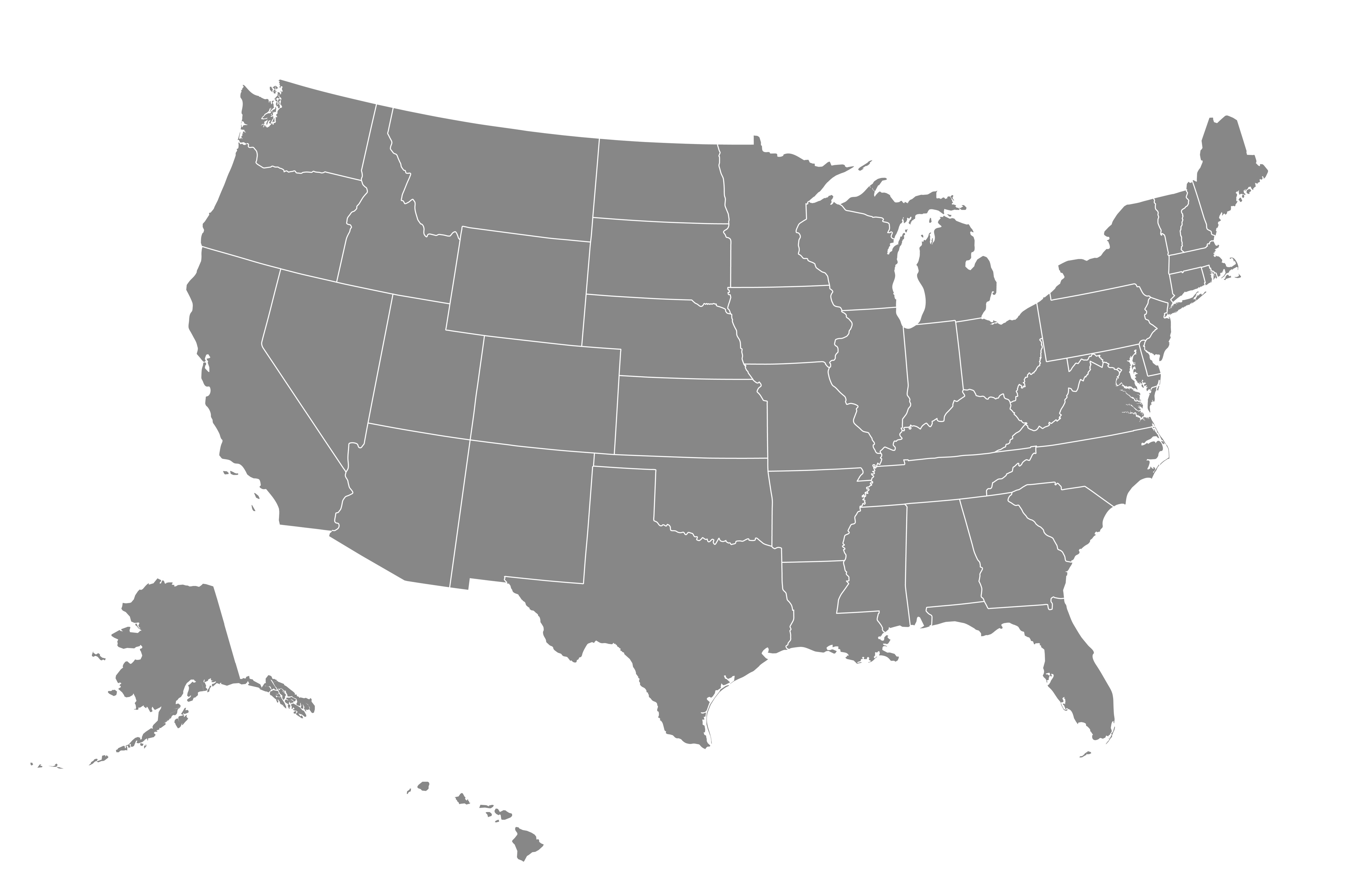

An Introduction to National Sources of Intimate Partner Violence Victimization Data - Webinar On-demand
- English
- Estimated Time: 4 hours 30 minutes
This webinar is designed as a descriptive and non-technical introduction to national sources of data on intimate partner violence (IPV) victimization in the United States. Target audience members are practitioners and others who are not primarily engaged in conducting their own research but are interested in learning more about the data systems that inform policy. The webinar focuses on three data collections: the Uniform Crime Reporting Program’s National Incident-Based Reporting System (UCR-NIBRS), the National Crime Victimization Survey (NCVS), and the National Intimate Partner and Sexual Violence Survey (NISVS).
In particular this webinar will include:
1. A discussion of each of the three national IPV victimization data sources including:
a. how the data are collected
b. how each can inform IPV research and policy
c. the strengths and limitations of the data source
2. A discussion of online resources and tools to assist practitioners who might be interested in exploring these data on their own
3. An opportunity for discussion and questions from participants
This project was supported by Award No. 2016-V3-GX-0008, awarded by the National Institute of Justice, Office of Justice Programs, US Department of Justice. The opinions, findings, and conclusions/recommendations expressed in this presentation are those of the author and do not necessarily reflect those of the US Department of Justice.
Free
Nuisance Ordinances: How They Work, Who They Harm, and How to Fight Them - Webinar On-demand
- AdvocateAttorney
- English
- Estimated Time: 1 hours 30 minutes
Nuisance ordinances – which impose civil and criminal penalties on residents for seeking police or emergency medical assistance - purport to discourage crime and promote safety and quality of life within communities. However, recent advocacy and research have revealed that these laws and policies have the opposite effect. These policies discourage residents from reporting and seeking emergency assistance for crimes, including incidents of domestic violence, and compromise the safety of survivors. Nuisance ordinances also have been used in targeted enforcement efforts against communities of color. This webinar provides an overview of how nuisance ordinances jeopardize housing for survivors of gender-based violence, as well as provide tools to combat these harmful laws.
This webinar is supported by Grant No. 2015-TA-AX-K027 awarded by the Office on Violence Against Women, U.S. Department of Justice. The opinions, findings, conclusions, and recommendations expressed in these webinars are those of the authors and do not necessarily reflect the views of the Department of Justice, Office on Violence Against Women.
Free


Policy Advocacy for AAPI Survivor Serving Organizations - Webinar on-demand
- English
- Estimated Time: 1 hours 8 minutes
When AAPI advocates say they want to work on policy advocacy, what does that mean? Do rules governing non-profits limit our ability to advocate to improve systems and laws impacting AAPI survivors?
Because elected officials vote on bills, make public statements, issue administrative rules and other executive decisions, and continue to impact how systems impact our communities, policy advocacy is a critical component of the work of AAPI survivor-serving organizations. This webinar will cover strategies for engaging in policy advocacy and policy analysis as advocates in AAPI communities. We will also provide a brief overview of the federal rules impacting 501(c)(3) organizations as we work to educate our communities about policy issues and actions taken by elected officials, both in legislative bodies, and in the executive branch.
This training was funded by Grant #90EV0430 from the Department of Health and Human Services (DHHS); Administration for Children and Families; Administration of Children, Youth and Families; Family Violence Division. The viewpoints contained in this publication are solely the responsibility of the authors and do not necessarily represent the official views or policies of the Administration for Children and Families.
Free


From a Spiral of Violence to a Whirlwind of Healing: Strengthening Advocacy for API LGBTQ Survivors - Webinar on-demand
- Advocate
- English
- Estimated Time: 1 hours 13 minutes
Domestic violence and intimate partner abuse have often been understood in terms of men’s violence against women. However, lesbian, gay, bisexual, transgender and queer-identified individuals consistently experience intimate partner violence at similar rates as heterosexual women. With 21-55% of Asian women reporting experiences of intimate physical and/or sexual violence during their lifetime, the implications for LGBTQ API individuals are extensive. Yet while the number of anti-violence programs serving Asian and Pacific Islander communities has grown considerably over the last decades, there is little research and still very few culturally-specific resources for LGBTQ survivors of gender-based violence.
This webinar will offer a framework for understanding Asian and Pacific Islander LGBTQ experiences of gender-based violence, and the multiple barriers that these survivors face when seeking support. Integrating highlights from the Institute’s September 2019 Roundtable on API LGBTQ communities, this presentation will provide ideas and recommendations for organizations to engage and serve API LGBTQ survivors more effectively.
This training was funded by Grant #90EV0430 from the Department of Health and Human Services (DHHS); Administration for Children and Families; Administration of Children, Youth and Families; Family Violence Division. The viewpoints contained in this publication are solely the responsibility of the authors and do not necessarily represent the official views or policies of the Administration for Children and Families.
Free


AAPI Challenges, Barriers, and Priorities: Share-back of our community listening sessions - Webinar on-demand
- AdvocateAttorney
- English
- Estimated Time: 1 hours 13 minutes
Over the past year and a half, API-GBV strove to learn more deeply from our community of front-line advocates, national partners, systems contacts, and allies through a series of listening sessions, assessment, and surveys. During this webinar, staff shared themes and learnings from these sessions with the broader community. This includes barriers faced by survivors from the diverse AAPI community, how COVID has impacted the last year of advocacy, and intersections with experiences of xenophobia and racism. From these learnings are recommendations and priorities for programs, funders, educators, systems, and policymakers.
This training was funded by Grant #90EV0430 from the Department of Health and Human Services (DHHS); Administration for Children and Families; Administration of Children, Youth and Families; Family Violence Division. The viewpoints contained in this publication are solely the responsibility of the authors and do not necessarily represent the official views or policies of the Administration for Children and Families.
Free


Trauma-Informed Care for AAPI Survivors: 3-Part Webinar Series - Webinar on-demand
- AdvocateAttorney
- English
- Estimated Time: 4 hours 30 minutes
Presented in collaboration with four AAPI community organizations and shelters, this webinar series explores the impacts of trauma on AAPI survivors and communities. Presenters share insight about working with survivors in shelter and through immigration and legal cases; and discuss best practices for providing culturally-specific, trauma-informed services, particularly within the context of COVID-19.
This training was funded by Grant #90EV0430 from the Department of Health and Human Services (DHHS); Administration for Children and Families; Administration of Children, Youth and Families; Family Violence Division. The viewpoints contained in this publication are solely the responsibility of the authors and do not necessarily represent the official views or policies of the Administration for Children and Families.
Free


The Pasifika Power & Control Wheel Translation Project - Webinar on-demand
- Advocate
- English
- Estimated Time: 4 hours 30 minutes
The Power & Control wheel is one of the most widely recognized training tools for visualizing the experiences of domestic violence survivors; yet, partners on our Pasifika Power & Control Wheel translation project realized quickly that it does not fully capture the experiences of Native Hawaiian, Samoan, and Chuukese survivors. In this webinar, project lead Matāpuna Levenson will describe the process and approach to the Wheel translation project, and why it involved much more than word-for-word translations. She will introduce the finished report, tools, and DV glossaries that were produced, and how educators and advocates can use them to engage Native Hawaiian, Samoan, and Chuukese survivors and communities around gender-based violence.
This training was funded by Grant #90EV0430 from the Department of Health and Human Services (DHHS); Administration for Children and Families; Administration of Children, Youth and Families; Family Violence Division. The viewpoints contained in this publication are solely the responsibility of the authors and do not necessarily represent the official views or policies of the Administration for Children and Families.
Free
Navigating HUD With AANHPI Survivors - Webinar on-demand
- Advocate
- English
- Estimated Time: 1 hours 0 minutes
API-GBV is joined by Karlo Ng, Director on Gender-based Violence Prevention and Equity, Office of the Secretary at the federal Department of Housing and Urban Development. Ms. Ng shares tips and resources in navigating HUD housing and homelessness programs to best support AANHPI survivors and AANHPI culturally specific organizations.
This training was funded by Grant #90EV0526 from the Department of Health and Human Services (DHHS); Administration for Children and Families; Administration of Children, Youth and Families; Family Violence Division. The viewpoints contained in this publication are solely the responsibility of the authors and do not necessarily represent the official views or policies of the Administration for Children and Families.
Free


Defending Criminalized Survivors - Webinar on-demand
- Attorney
- English
- Estimated Time: 1 hours 30 minutes
What happens when the laws that are supposed to protect survivors of domestic violence and sexual assault become turned against them? Survivors can be criminalized for reacting in self-defense, participating in criminal activity under their abusers’ coercion, or for failing to protect their children from witnessing or being impacted by violence in the home. Survivors of color, who struggle with mental health or substance dependency, or who otherwise don’t fold the “perfect victim” mold are disproportionately incarcerated. In this workshop, API-GBV was joined by Hyejin Shim and Neda Said of Survived & Punished, who guided participants through a discussion of the criminalization of survivors, and how advocates can support criminalized survivors.
This training was funded by Grant #90EV0526 from the Department of Health and Human Services (DHHS); Administration for Children and Families; Administration of Children, Youth and Families; Family Violence Division. The viewpoints contained in this publication are solely the responsibility of the authors and do not necessarily represent the official views or policies of the Administration for Children and Families.
Free
Powerful Partnerships: Collaborative efforts to address human trafficking affecting AAPI communities - Webinar on-demand
- AdvocateAttorney
- English
- Estimated Time: 1 hours 0 minutes
Alia El-Sawi, a Victim Assistance Specialist at the Department of Homeland Security, joins API-GBV for our first “fireside chat” hosted by our Executive Director Monica Khant. Drawing also from her previous role as the Anti-Human Trafficking Coordinator at a community-based organization that provides culturally-responsive services for survivors of human trafficking, Alia will discuss what can be done to increase coordination and communication between DHS agents and community-based advocates in responding to trafficking situations and minimizing trauma for survivors. The conversation will also illuminate challenges to current anti-trafficking efforts, including fear of reporting, human-trafficking’s concurrence with other forms of gender-based violence, and the abundant stereotypes around the trafficking of AAPI individuals.
This training was funded by Grant #90EV0526 from the Department of Health and Human Services (DHHS); Administration for Children and Families; Administration of Children, Youth and Families; Family Violence Division. The viewpoints contained in this publication are solely the responsibility of the authors and do not necessarily represent the official views or policies of the Administration for Children and Families.
Free


Decolonizing Our Body As Land — Ritual of Sickness: ChilseongSaenamgut (With Dohee Lee) - Webinar on-demand
- Advocate
- English
- Estimated Time: 1 hours 0 minutes
The creative process of ritual through our own body is the key word. Our embodied and mindful practice will bring the source and resources to explore and examine individual roots and cultural elements that we were longing for to reconnect. We reclaim our cultural and ancestral dignity and resilience from the colonial system of oppression. We reclaim our matriarchal beliefs into collective creative healing and spiritual activism once our ancestors did for the ceremonies and rituals.
About the facilitator:
Dohee Lee, a performance artist, ritualist, and educator was born on Jeju Island in South Korea. Her creative vision comes from traditional Korean music, singing, drumming and dance which is rooted in Korean indigenous ritual. Since her arrival in the US she has been a vital contributor to both the traditional and contemporary arts landscape of the San Francisco Bay Area and beyond. She utilizes art to heal fractured relationships in the urban environment – relationships between humans and the land, histories and stories between individuals and their communities. She is the founder of Puri Arts, a producing organization of performance and ritual. Her work has been acknowledged by several awards, such as Guggenheim Fellowship, Hewlett 50 Arts Commission, Creative Work Foundation, Herb Alpert Award, Doris Duke Impact Award, Creative Capital, Kenneth Rainin Foundation, Isadora Duncun Dance Award, Zellerbach Family foundation and more.
This training was funded by Grant #90EV0526 from the Department of Health and Human Services (DHHS); Administration for Children and Families; Administration of Children, Youth and Families; Family Violence Division. The viewpoints contained in this publication are solely the responsibility of the authors and do not necessarily represent the official views or policies of the Administration for Children and Families.
Free
A Conversation with Author Dr. Nusrat Rabbee: War Heroines Speak - Webinar on-demand
- Advocate
- English
- Estimated Time: 1 hours 30 minutes
A conversation with Dr. Nusrat Rabbee, author of War Heroines Speak: The Rape of Bangladeshi Women in 1971 War of Independence. During this dialogue, Dr. Rabbee discussed the use of rape as a weapon of genocide in the war of 1971, and how it impacted not only the women, but also society in post-war Bangladesh. Dr. Rabbee also explored where women’s rights and status are currently in Bangladesh, and what is currently being done to acknowledged gender-based violence in the country. She also discussed how the events of 1971 connect to the movement to end gender-based violence today, across the world and in the United States.
This training was funded by Grant #90EV0430 from the Department of Health and Human Services (DHHS); Administration for Children and Families; Administration of Children, Youth and Families; Family Violence Division. The viewpoints contained in this publication are solely the responsibility of the authors and do not necessarily represent the official views or policies of the Administration for Children and Families.
Free
Female Genital Cutting/Mutilation: An Under-Recognized Form of GBV in the US - Webinar on-demand
- Advocate
- English
- Estimated Time: 1 hours 30 minutes
Female genital mutilation or cutting (FGM/C) is a reality for many women and girls across different communities in the United States. Yet, for centuries, FGM/C has remained a hidden tradition. It’s often practiced by women to women, and girls are raised to believe they must remain silent about what they underwent. Silence is an endemic or inherent part of this type of gender violence that can lead to lifelong physical and emotional health consequences. At the core of providing better prevention, protection, health and social support services for women and girls is stronger data, enhanced research, and community engagement. Join Sahiyo, the Asian-Pacific Institute on Gender-Based Violence, and the U.S. End FGM/C Network for an exploration of FGM/C, its connection to gender-based violence, and how COVID-19 has impacted the movement to abandon FGM/C in the US.
This training was funded by Grant #90EV0430 from the Department of Health and Human Services (DHHS); Administration for Children and Families; Administration of Children, Youth and Families; Family Violence Division. The viewpoints contained in this publication are solely the responsibility of the authors and do not necessarily represent the official views or policies of the Administration for Children and Families.
Free


Webinar for Advocates and Adult Allies! Sexual Harassment & AAPI Teens - Webinar on-demand
- Advocate
- English
- Estimated Time: 1 hours 30 minutes
Do you know what signs to look for and what steps to take if a teen or young adult encounters sexual or other harassment in the workplace? At the EEOC, we have seen that young workers at their first jobs can be especially vulnerable to harassment whether due to sex, national origin and other characteristics. Make a difference in the lives of the Asian and Pacific Islander teens and young adults you serve by learning how to recognize and refer cases, and understanding the role you can play to address workplace sexual harassment. Presented by EEOC San Francisco. Hosted by API-GBV.
This training was funded by Grant #90EV0430 from the Department of Health and Human Services (DHHS); Administration for Children and Families; Administration of Children, Youth and Families; Family Violence Division. The viewpoints contained in this publication are solely the responsibility of the authors and do not necessarily represent the official views or policies of the Administration for Children and Families.
Free


What is Gendered Islamophobia? - Webinar on-demand
- Advocate
- English
- Estimated Time: 4 hours 30 minutes
Building upon a history of shared values and intersecting work, the Partnership to End Gendered Islamophobia brings together HEART, Justice for Muslims Collective and Vigilant Love to build analysis, tools and power to dismantle Gendered Islamophobia. This workshop is specifically tailored towards practitioners in the field of gender-based violence and gender justice. We focus on ways practitioners can better understand how gendered Islamophobia shows up in their work, and ways to respond in holistic ways. The workshop includes a focus on the intersection of gendered Islamophobia, gender-based violence and reproductive justice. The workshop emphasizes the invisibility of state violence in understanding gender-based violence and particularly the implications of the War on Terror and Islamophobia for Muslim survivors of gender-based violence. Moreover, this workshop includes discussions upon intra-community solidarity and what can be done within broader Asian American spaces to address gendered Islamophobia.
This training was funded by Grant #90EV0430 from the Department of Health and Human Services (DHHS); Administration for Children and Families; Administration of Children, Youth and Families; Family Violence Division. The viewpoints contained in this publication are solely the responsibility of the authors and do not necessarily represent the official views or policies of the Administration for Children and Families.
Free


Faithful Allies: Working with Christian Leaders - Webinar on-demand
- Advocate
- English
- Estimated Time: 1 hours 30 minutes
Almost 70-80% of Korean immigrants in the U.S. reports that they attend church regularly. Korean American Family Services (KFAM) has encountered so many survivors whose faith play a very important role for their journey to healing. Because of this reason, KFAM has been working with the Korean faith community for about 8 years in order to make our community more welcoming to survivors and to train faith leaders to become supportive first responders. Through this webinar, KFAM will share our work with faith leaders, our strategy and the impact of our work.
This training was funded by Grant #90EV0430 from the Department of Health and Human Services (DHHS); Administration for Children and Families; Administration of Children, Youth and Families; Family Violence Division. The viewpoints contained in this publication are solely the responsibility of the authors and do not necessarily represent the official views or policies of the Administration for Children and Families.
Free


Evidence-Informed Practices to Serve Asian/Pacific Islander Domestic Violence Survivors - Webinar on-demand
- AdvocateAttorney
- English
- Estimated Time: 1 hours 30 minutes
To address the domestic violence dynamics and trends in API communities, advocates have designed programs based on an intimate knowledge of their communities and the needs of API survivors. This webinar identifies the differing dynamics and current domestic violence trends API immigrant and refugee survivors are facing. It will describe the A-Z Advocacy Model’s inventory of evidence-informed practices and the foundational principles that anchor this unique model.
This training was funded by Grant #90EV0430 from the Department of Health and Human Services (DHHS); Administration for Children and Families; Administration of Children, Youth and Families; Family Violence Division. The viewpoints contained in this publication are solely the responsibility of the authors and do not necessarily represent the official views or policies of the Administration for Children and Families.
Free


Survivor-Centered, Trauma-Informed Advocacy for Trafficking Survivors: 3-part webinar - Webinar on-demand
- Advocate
- English
- Estimated Time: 16 hours 30 minutes
a. Advocacy & Services for Trafficking Survivors, 2014: A comprehensive overview of sex and labor trafficking – actions/means/purposes, data, root causes, traumas and oppressions, help-seeking, legal remedies, cross-systems trauma-informed collaboration.
b. Supporting Domestic Trafficking Survivors, 2015: Two national experts, Tina Frundt and Elisabeth Corey, lay the foundations for understanding domestic minor sex trafficking, followed by the traumatic impacts of victimization and operationalizing trauma-informed responses within new and existing advocacy structures and partnerships.
c. The Culture of Family-Controlled Trafficking, 2016: Elisabeth Corey reaches into her story to teach us about the traffickers, the enablers, and the family on the outside and inside that operate family-controlled trafficking; and how survivors can be helped.
This training was funded by Grant #90EV0430 from the Department of Health and Human Services (DHHS); Administration for Children and Families; Administration of Children, Youth and Families; Family Violence Division. The viewpoints contained in this publication are solely the responsibility of the authors and do not necessarily represent the official views or policies of the Administration for Children and Families.
Free


Desarollo del Cerebro Aldolecente - Desarollo del Cerebro Aldolecente
- Spanish
- Estimated Time: 4 hours 35 minutes
La doctora Javiera Monardez Popelka explica el desarollo del cerebro adolecente para entender cmoo los padres y adultos puedan apoyar a los adolescentes
Free


Survivor Health Connections- Find A Health Center Tool Integration - Webinar on-demad
- Advocate
- English
- Estimated Time: 1 hours 0 minutes
Supporting Survivors with Health-Related Needs and Concerns; Find a Health Center tool integration workflow
Free


Demystifying The Hotline - Webinar On-Demand
- Advocate
- English
- Estimated Time: 10 hours 2 minutes
History and Mission of The Hotline and Advocacy Philosophy: Safe vs. Safer
Free


Abusive Partners Trauma-Informed Self Care - Webinar On-demand
- Advocate
- English
- Estimated Time: 0 hours 20 minutes
Trauma-Informed self care for Advocates
Free
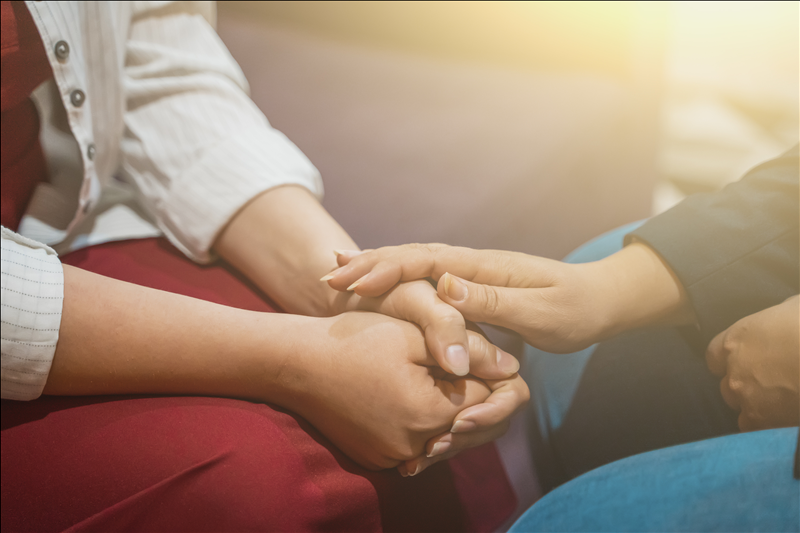

Abusive Partners Understanding Why Abuse Exists - Webinar On-demand
- Advocate
- English
- Estimated Time: 0 hours 22 minutes
Understanding Why Abuse Exists
Free


Supporting Patients Experiencing Intimate Partner Violence - Webinar On-demand
- English
- Estimated Time: 1 hours 0 minutes
Understand the scope and impact of intimate partner violence and know how to make referrals to The Hotline and other services to support survivors.
Free
Using Web-Based Technologies to Promote Safe Access to Protection Orders During Pandemics and Natural Disasters - Webinar On-demand
- Attorney
- English
- Estimated Time: 1 hours 30 minutes
During the COVID-19 pandemic, courts have been modifying procedures and expanding remote access to protection orders to help survivors overcome the additional barriers presented by social distancing and state stay-at-home orders. Online petitioning programs for remote access to protection orders have been available for several years, but their accessibility, functionality, and safety features vary across states and individual courts. Working with advocates, law enforcement, and other stakeholders over the past few years, the Supreme Courts of Arizona and Indiana have designed and implemented web-based technologies for obtaining protection orders with survivor safety as the paramount objective. Participants in the webinar will hear an overview of web-based technologies for protection orders and learn how AZPOINT, the Arizona Protective Order Initiation and Notification Tool, and Indiana’s Protection Order E-Filing Service are enhancing the courts’ capacity to provide safeguards for survivors during the COVID-19 pandemic and into the future.
This project is supported by Grant No. 2016 TA-AX-K054 awarded by the Office on Violence Against Women, U.S. Department of Justice. The opinions, findings, conclusions, and recommendations expressed in this publication are those of the author(s) and do not necessarily reflect the views of the U.S. Department of Justice, Office on Violence Against Women.
Free


Getting To Safety: What Do We Know? How Do We Help? - Webinar On-demand
- English
- Estimated Time: 1 hours 0 minutes
The body of knowledge about the relationship between animal cruelty and interpersonal violence is long, deep, and consistent. Effective responses were slow to develop, but that is changing too, and there is a growing recognition of the need to provide policies and programs to help survivors of family violence and their companion animals. What’s available? What is still needed? The purpose of this webinar is threefold: 1)To provide some background on the considerable research and experience that demonstrates the relationship between animal cruelty and interpersonal violence, especially domestic violence/child abuse/elder abuse: 2)To acquaint attendees with the policies, practices and programs that have evolved to respond to the needs of those experiencing this combination of family violence, such as the inclusion of pets on protection orders; and 3)To provide a list of resources available to those who work with this group of survivors.
This project was supported by Grant No. 15JOVW-21-GK-02253-MUMU awarded by the Office on Violence Against Women, U.S. Department of Justice. The opinions, findings, conclusions, and recommendations expressed in this publication/program/exhibition are those of the author(s) and do not necessarily reflect the views of the Department of Justice, Office on Violence Against Women.
Free


Elder Justice, Protection Orders, and COVID-19 - Webinar On-demand
- English
- Estimated Time: 1 hours 30 minutes
As our country has confronted the coronavirus pandemic, it has necessitated profound changes in the way we offer services to older survivors of abuse and in victims’ ability to access needed supports. This webinar will explore the challenges and opportunities that arise in working with older survivors during a pandemic, with a particular focus on issuance, service, and enforcement of protection orders.
This project was supported by Grant No. 2016-TA-AX-K052. and 2016-TA-AX-K071 awarded by the Office on Violence Against Women, U.S. Department of Justice. The opinions, findings, conclusions, and recommendations expressed in this presentation are those of the authors and do not necessarily reflect the views of the Department of Justice, Office on Violence Against Women.
Free
Responding to Domestic Violence- Related Homicides Within Your Community - Webinar On-demand
- AdvocateAttorney
- English
- Estimated Time: 1 hours 30 minutes
Domestic violence programs are often called upon to react swiftly and adeptly in the aftermath of a domestic violence homicide in their community. There are many competing demands that require attention - from supporting surviving family members of the homicide victim, to supporting domestic violence advocates in the program and survivors that the program is working with. Domestic violence homicides often leave a community reeling and wondering what the best course of action is. End Domestic Abuse Wisconsin created a Domestic Violence Homicide Response Plan as a resource for Wisconsin domestic violence programs to turn to as they navigate the complexities that arise in the aftermath of a domestic violence homicide. This webinar highlights the Domestic Violence Homicide Response Plan and provides suggestions for how it can be applied in practice. In particular, Jessica Honish and Courtney Olson from Rainbow House (a domestic violence program in northeast Wisconsin) share their experience navigating the unimaginable loss of their colleague to a domestic violence homicide in 2013. Jessica and Courtney provide valuable insight about ways they have transformed their loss into action within their community and beyond.
This project was supported by Grant No. 2016-TA-AX-K047 awarded by the Office on Violence Against Women, U.S. Department of Justice. The opinions, findings, conclusions, and recommendations expressed in this program are those of the authors and do not necessarily reflect the views of the Department of Justice, Office on Violence Against Women.
Free


Potential to Prevent Mass Shootings Through Domestic Violence Firearm Restrictions - Webinar On-demand
- English
- Estimated Time: 1 hours 30 minutes
In this webinar, Dr. April M. Zeoli will discuss findings from her recently published research investigating mass shooters and the potential to prevent mass shootings through domestic violence firearm restrictions.
This project was supported by Grant No. 2016-TA-AX-K047 awarded by the Office on Violence Against Women, U.S. Department of Justice. The opinions, findings, conclusions, and recommendations expressed in this program are those of the authors and do not necessarily reflect the views of the Department of Justice, Office on Violence Against Women.
Free


Firearm Restriction Laws and Intimate Partner Homicide: Protective Effects by Race - Webinar On-demand
- AdvocateAttorney
- English
- Estimated Time: 1 hours 30 minutes
In this webinar participants will hear from researchers Charvonne N. Holliday, PhD and April Zeoli, PhD about their recent study examining whether domestic violence firearm restriction laws were associated with reductions in intimate partner homicide and firearm intimate partner homicide in Black and White populations, separately.
This project was supported by Grant No. 2016-TA-AX-K047 awarded by the Office on Violence Against Women, U.S. Department of Justice. The opinions, findings, conclusions, and recommendations expressed in this program are those of the authors and do not necessarily reflect the views of the Department of Justice, Office on Violence Against Women.
Free
Federal Domestic Violence, Stalking, and Related Firearm Crimes - Webinar On-demand
- English
- Estimated Time: 1 hours 30 minutes
Strategies to Successfully Prosecute Interstate Domestic Violence and Stalking Crimes While domestic violence remains primarily a matter of state and local jurisdiction, there are several federal laws available for prosecuting domestic violence and stalking offenders. It is important that law enforcement, attorneys and advocates work together with federal prosecutors to identify these crimes for potential federal prosecution. This webinar will provide an overview of the federal statutes available and discuss how system actors can work cooperatively with federal prosecutors to pursue charges.
This project is supported by Grant No. 2016-TA-AX-K052 awarded by the Office on Violence Against Women, U.S. Department of Justice.
The opinions, findings, conclusions, and recommendations expressed in this presentation are those of the authors and do not necessarily reflect the views of the Department of Justice, Office on Violence Against Women.
Free


Nonfatal Intimate Partner Violence: The Special Role of Firearms - Webinar On-demand
- AdvocateAttorney
- English
- Estimated Time: 1 hours 30 minutes
In this webinar, two researchers who have worked with individuals, community groups, and government agencies review key points about what is known about how guns are used in nonfatal IPV.
This project was supported by Grant No. 2016-TA-AX-K047 awarded by the Office on Violence Against Women, U.S. Department of Justice. The opinions, findings, conclusions, and recommendations expressed in this program are those of the authors and do not necessarily reflect the views of the Department of Justice, Office on Violence Against Women.
Free


Trends in Firearm Legislation and Case Law - Webinar On-demand
- English
- Estimated Time: 4 hours 30 minutes
The landscape around firearm laws is constantly shifting. If you want to know about recent legal changes, this webinar is for you. The National Center on Protection Orders and Full Faith & Credit is pleased to have Alla Lefkowitz, Senior Staff Attorney of the Brady Center to Prevent Gun Violence present “Recent Trends in Firearm Legislation and Case Law Update. ” This webinar will provide an overview of legislative changes and current firearm case law.
This webinar provides an overview of legislative changes and firearm case law, current as of July of 2017.
This project is supported by Grant No. 2016-TA-AX-K052 awarded by the Office on Violence Against Women, U.S. Department of Justice. The opinions, findings, conclusions, and recommendations expressed in this presentation are those of the authors and do not necessarily reflect the views of the Department of Justice, Office on Violence Against Women.
Free


State Firearm Prohibitions for Domestic Violence Protective Orders - Webinar On-demand
- English
- Estimated Time: 4 hours 30 minutes
This webinar, originally titled The Patchwork of State Laws on Firearm Prohibitions for Domestic Violence Protective Orders, provides a comparison of current state laws regarding firearms prohibitions following the imposition of domestic violence protective orders.
This project was supported by Grant No. 2016-TA-AX-K047 awarded by the Office on Violence Against Women, U.S. Department of Justice. The opinions, findings, conclusions, and recommendations expressed in this webinar are those of the authors and do not necessarily reflect the views of the Department of Justice, Office on Violence Against Women
Free


Working with Interpreters in a Court Setting - Webinar On-demand
- AdvocateAttorney
- English
- Estimated Time: 4 hours 30 minutes
Working with an interpreter is essential to ensuring victim safety for individuals with limited English proficiency in the civil protection order process. This webinar will provide participants with the tools and resources needed to effectively work with an interpreter, identify and address problems during interpretation, and language access resources to enhance language services for individuals seeking civil protection orders.
This presentation was supported by Grant No. 2017-TA-AX-K018, 2016-TA-AX-K052, and 2017- TA-AX-K031awarded by the Office on Violence Against Women, U.S. Department of Justice. The opinions, findings, conclusions, and recommendations expressed in this presentation are those of the authors and do not necessarily reflect the views of the Department of Justice, Office on Violence Against Women.
Free


Defense-Based Advocacy- Part 1: When Survivors are Accused - Background and Overview - Webinar On-demand
- English
- Estimated Time: 4 hours 30 minutes
This webinar is part one of a three-part professional development series for community-based advocates, attorneys who work with victims of battering, and anyone interested in learning more about victims of battering charged with crimes. Facilitated by Cindene Pezzell, Director of the National Defense Center for Criminalized Survivors at BWJP, participants will learn more about how victims of battering and abuse end up in the legal system as defendants, the unique challenges and risks faced by victim defendants, and the difficulties experienced by victim defendants who seek assistance from victim service organizations.
Funding for this project was made available through the US Department of Health and Human Services, Grant #90EV0528. The viewpoints contained in this document are solely the responsibility of the author(s) and do not represent the official views or policies of the department, and do not in any way constitute an endorsement by the Department of Health and Human Services.
Free
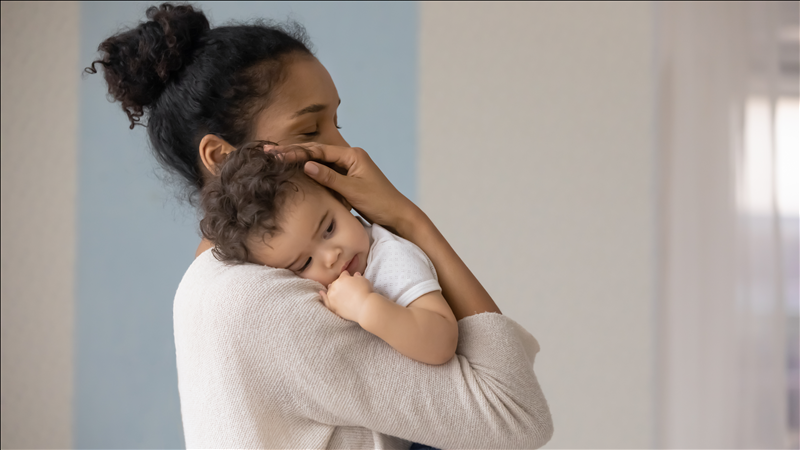

Coercive Control and Shared Parenting During Covid-19 - Webinar On-demand
- English
- Estimated Time: 0 hours 20 minutes
The rates of domestic violence increased during the Covid-19 pandemic as the virus spreads across the globe and into our homes. These circumstances allowed domestic abusers to find ways to exercise coercive control. This course consists of two short webinars. The first webinar describes how abusers can exploit social distancing and shelter-in-place policies to achieve power and control over household members. The second webinar focuses on shared legal custody and how shared legal custody can be a pathway for an abusive parent to exercise power over the victim-parent and child. During this pandemic, decisions about a child's education, healthcare, and at-home life were even more critical, and the opportunities for abusers to manipulate and entrap are increased.
Free


A SAFeR Approach to Decision-Making: An Introduction - Webinar On-demand
- English
- Estimated Time: 0 hours 20 minutes
SAFeR is an approach to decision making in family law matters. This brief webinar will provide an overview of SAFeR and an introduction to the worksheets. Using this framework, we can improve the safety and outcomes for survivors and their children. SAFeR consists of four steps:
1. Screening for violence
2. Assessing the full nature and context
3. Focusing on the effects of GBV
4. Responding to the lived experience of the violence
Free


Defense-based Advocacy -Part 3: The Role of DBA in the Anti-Violence Movement - Webinar On-demand
- English
- Estimated Time: 4 hours 30 minutes
In the third and final webinar of this series, participants will learn about the scope of the crisis of the criminalization of survivors; ways that the criminal legal system causes, replicates, and perpetuates harm to victims, their families, and communities; and explore why anti-domestic violence advocates are critical to the fight for justice for criminalized survivors.
Funding for this project was made available through the US Department of Health and Human Services, Grant # 90EV0528. The viewpoints contained in this document are solely the responsibility of the author(s) and do not represent the official views or policies of the department and do not in any way constitute an endorsement by the Department of Health and Human Services.
Free


Assisting Survivors of Human Trafficking in Protection Order Proceedings: Options and Challenges - Webinar On-demand
- English
- Estimated Time: 1 hours 30 minutes
Human trafficking victims often experience several forms of abuse, such as domestic violence and sexual assault. These survivors may be afraid to disclose information to obtain relevant legal assistance, thereby remaining vulnerable to traffickers. To address this issue, attorneys must have the knowledge and tools to understand human trafficking, identify victims, and recognize the legal needs of these survivors. This webinar will examine the complexities of human trafficking and the challenges survivors face when deciding whether or not to obtain a protection order. Participants will receive information on how to obtain tools, training, and technical assistance on understanding human trafficking and assisting survivors.
This project was supported by Grant No. 2016-TA-AX-K052. and 2016-TA-AX-K071 awarded by the Office on Violence Against Women, U.S. Department of Justice. The opinions, findings, conclusions, and recommendations expressed in this presentation are those of the authors and do not necessarily reflect the views of the Department of Justice, Office on Violence Against Women.
Free


Gathering Technology Abuse Evidence in Protection Order Cases - Gathering Technology Abuse Evidence in Protection Order Cases Recorded Webinar
- AdvocateAttorney
- English
- Estimated Time: 1 hours 30 minutes
Communication software, social media, and location services are increasingly used to stalk, harass, and terrorize. This interactive webinar will examine the technologies most commonly misused in domestic violence cases and outline the process for gathering and admitting evidence of tech abuse.
This project was supported by Grant No. 2016-TA-AX-K052 awarded by the Office on Violence Against Women, U.S. Department of Justice. The opinions, findings, conclusions, and recommendations expressed in this presentation are those of the authors and do not necessarily reflect the views of the Department of Justice, Office on Violence Against Women.
Free
Critical Issues Forum: SAFE Tool - Live Critical Issues November 8 , 2022 2:00 -3:00 p.m. ET
- Attorney
- English
- Estimated Time: 1 hours 0 minutes
November 8, 2022. 2:00 p.m. - 3:00 p.m. ET
Conversations for and by allied professionals on critical issues that impact survivor safety and offender accountability.
Every month, National Center on Protection Orders and Full Faith & Credit will discuss critical issues and answer questions on protection order practice and related issues. These are live unrecorded events. Participants have the opportunity to connect with peers and NCPOFFC Attorney Advisors to talk about challenges, strategies, emerging issues, promising practices, and more.
In November, NCPOFFC will discuss the Strategic Assessment of Firearm Enforcement (SAFE) Tool. The S.A.F.E. Tool is an inventory of questions designed to facilitate a discussion with a survivor on safety strategies around firearms assistance to victims in protection order matters.
Bring your questions or submit them in advance. Registration is required to participate in the discussion. We look forward to you joining us!
Unavailable for this discussion? NCPOFFC is available to provide individualized virtual office hours via phone and Zoom.
This project was supported by Grant No. 15JOVW-21-GK-02253-MUMU awarded by the Office on Violence Against Women, U.S. Department of Justice. The opinions, findings, conclusions, and recommendations expressed in this publication/program/exhibition are those of the author(s) and do not necessarily reflect the views of the Department of Justice, Office on Violence Against Women.
Free


Tools for Advocates Responding to Covid-19 and Domestic Violence - Webinar On-demand
- Attorney
- English
- Estimated Time: 1 hours 30 minutes
Summary The COVID-19 pandemic has dramatically increased danger for survivors of domestic violence in the past few months. Governmental “stay at home” orders have forced many survivors and their children into isolation with abusive partners, while abusers, not surprisingly, have used threats of infection with COVID-19 to control their intimate partners and other family members. In a time of pandemic, survivors have far more limited access to shelter services, financial assistance, law enforcement responses, and court protections, leaving them without the safety resources that were once available to them. And many survivors are among those who have lost their jobs in the economic turmoil COVID-19 has created, jeopardizing potential independence from an abusive home life.
Many organizations are stepping up to provide toolkits that can be used by survivors and victim advocates alike in this unique time to help survivors trapped in abusive situations. This webinar will review a number of these helpful toolkits and will also address how safety planning and protection orders may be used to keep survivors safe against physical and firearm violence in a “stay at home” situation.
This project is supported by Grant No. 2016-TA-AX-KO52 warded by the Office on Violence Against Women, U.S. Department of Justice. The opinions, findings, conclusions, and recommendations expressed in this publication are those of the author(s) and do not necessarily reflect the views of the Department of Justice, Office on Violence Against Women.
Free


Reducing Barriers To Safety- Securing Economic Relief Through Protection Orders - Webinar On-Demand
- English
- Estimated Time: 4 hours 30 minutes
Economic security is often one of the most significant factors in determining a survivor's short and long-term safety. A 2012 Mary Kay survey of transitional housing and shelter programs reported that 74% of victims stayed with an abuser longer due to financial issues. Additional research shows that survivors' efforts to obtain legal protection carry major economic costs. Safety for survivors requires access to financial resources in order to restore past economic harms resulting from the abuse and to cover the cost of survivors' basic needs moving forward. Civil and criminal protection orders can mitigate the short-term economic barriers that survivors face in their efforts to achieve long-term safety and economic justice.
This webinar will explore how protection orders can be used to address the economic needs of survivors by covering:
the link between economic security and physical safety;
the landscape of economic relief in civil protection order law;
concrete strategies for accessing and enforcing economic civil protection order relief;
the role of criminal protection orders in promoting economic security; and
building partnerships between civil and criminal attorneys and advocates to strengthen economic security for survivors.
This project was supported by Grant No. 2016-TA-AX-K052 awarded by the Office on Violence Against Women, U.S. Department of Justice. The opinions, findings, conclusions, and recommendations expressed in this presentation are those of the authors and do not necessarily reflect the views of the Department of Justice, Office on Violence Against Women.
Free


#Me Too? Sexual Harassment and low wage immigrant workers - Webinar On-Demand
- English
- Estimated Time: 1 hours 0 minutes
Immigrant and migrant women are more likely than average native-born women to experience sexual harassment at work, and are less likely to report it. During this webinar, participants will learn about the prevalence of sexual harassment in agriculture, the legal process for making complaints about workplace harassment and discrimination, and practical remedies available to immigrant and migrant survivors and their advocates. The presenters will also speak about how non-attorney advocates can best support survivors, regardless of whether they are prepared to report workplace harassment, and how they can best work with members of the survivor’s legal team. Presenters: Corinne Guest, MSW, LCSW, Social Worker, La Puerta Abierta Liz Chacko, Esq., Attorney, Justice at Work Athena Buell Becerra, Paralegal, Justice at Work.
Free


Should They Stay or Should They Go? Helping Domestic Violence Survivors with Interstate Custody - Webinar On-Demand
- English
- Estimated Time: 4 hours 30 minutes
This webinar on basic interstate custody issues will provide participants with an overview of the various federal and state laws that govern interstate custody cases. It is designed for attorneys, victim advocates, and other community partners who wish to understand the basic framework of how these laws fit together. Case scenarios will be used to demonstrate how practitioners can help survivors address the economic, safety and legal issues involved when they cross state or tribal lines to flee abuse. The presenters are Deborah Goelman, Esq. and Amie Lewis, MA
This presentation was supported by Grant No. 2016-TA-AX-K030 awarded by the Office on Violence Against Women, U.S. Department of Justice. The opinions, findings, conclusions, and recommendations expressed in this presentation are those of the authors and do not necessarily reflect the views of the Department of Justice, Office on Violence Against Women.
Free


Intersection of Firearms and Domestic Violence - Informational Video on Firearms and Domestic Violence
- English
- Estimated Time: 0 hours 3 minutes
Did you know that most mass shootings in the US happen inside private homes? Alicia Nichols, Deputy Director of the National Resource Center on Domestic Violence and Firearms, describes the connections between firearms and intimate partner violence.
Visit the Safer Families, Safer Communities website to learn more about how communities are working to protect victims/survivors from gun violence: http://www.preventdvgunviolence.org
Free


The Coercive Control Context: Practical Implications - Webinar On-Demand
- English
- Estimated Time: 1 hours 30 minutes
In this webinar, Evan Sark, Ph.D., MSW, dives into the topic of coercive control legislation within England and Scotland, the coercive control framework within the domestic violence field, and coercive control of children.
This webinar series was supported by Grant No. #90EV0440-01-00 awarded by the Department of Health and Human Services. The viewpoints contained in this document are solely the responsibility of the author(s) and do not represent the official views or policies of the department and do not in any way constitute an endorsement by the Department of Health and Human Services.
Free


Consultivo de Investigacion con la Dra. Suzana Mariscal - Consultivo de Investigacion con la Dra. Suzana Mariscal
- Spanish
- Estimated Time: 0 hours 30 minutes
En este episodio hablamos con Susana Mariscal, nuevo miembro del conduje consultivo de investigacion de Esperanza United y profesora asociada de trabajo social de la Universidad de Indiana. Susana es una académica comprometida con la comunidad con una agenda de investigación activa centrada en las modificaciones del entorno social que promueven la resiliencia entre los niños y las familias y facilitan la prevención primaria del maltrato infantil. Ha estudiado la violencia entre adolescentes latinos; las disparidades en el acceso a la salud y a los servicios entre los niños y las familias latinas; y la resiliencia entre los jóvenes expuestos a la violencia doméstica, identificando las diferencias raciales/étnicas en los factores de protección. Su proyecto actual "Strengthening Indiana Families" (SIF) se centra en la implementación y evaluación de una serie de servicios y apoyos basados en la comunidad diseñados para promover entornos familiares saludables y reforzar la seguridad y el bienestar de las familias en el centro de Indiana.
Free


Evaluating Domestic Violence Murder-Suicides - Evaluating Domestic Violence Murder-Suicides Recorded Webinar
- AdvocateAttorney
- English
- Estimated Time: 1 hours 30 minutes
Murder-suicide incidents account for a disproportionate rate of domestic violence-related deaths nationwide, however services for survivors are limited and rare. After nearly a decade of studying the homicide-suicide connection in fatal incidents of abuse, the State of Georgia has implemented services unique to this population of often overlooked survivors. This workshop will highlight data on murder-suicide, discuss the close ties between domestic violence-related homicide and suicide for the purpose of bolstering prevention efforts, explore the unique needs of survivors, and provide an overview of supportive interventions being cultivated in Georgia and a roadmap for similar implementation in attendees’ home communities.
Funding Stream:
This project was supported by Grant No. 15JOVW-21-GK-02232-MUMU awarded by the Office on Violence Against Women, U.S. Department of Justice. The opinions, findings, conclusions, and recommendations expressed in this program are those of the authors and do not necessarily reflect the views of the Department of Justice, Office on Violence Against Women.
Free


The Drawbacks of Codifying Coercive Control in Child Custody Cases - Webinar On-Demand
- AdvocateAttorney
- English
- Estimated Time: 1 hours 10 minutes
Presented by Professor Lisa A. Tucker, we will consider the push for new laws which recognize coercive control in the child custody context. Professor Tucker will argue that new coercive control laws will be unlikely to increase support for mothers who are victims of coercive control, and will be unhelpful to them in securing custody of their children.
Funding for this project was made available through the U.S. Department of Health and Human Services, Administration for Children and Families, Award Number 90EV0528-02-00. The viewpoints expressed in this webinar are solely the responsibility of the presenter and do not represent the official views or policies of the department and do not in any way constitute an endorsement by the Department of Health and Human Services
Free
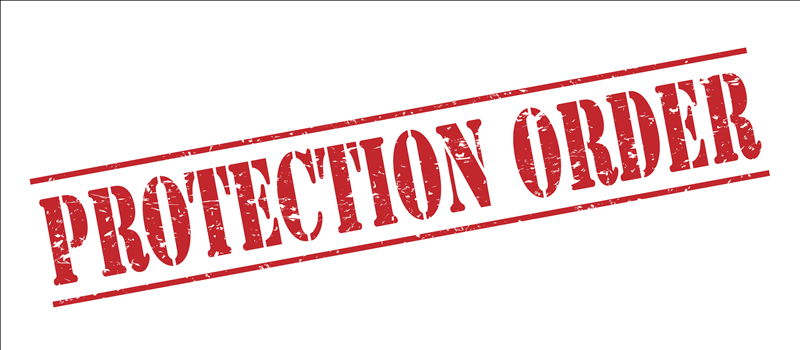

Project Safeguard Training - Full Faith and Credit for Protection Orders
- AttorneyDomestic violence program staff (and boards, advocates, volunteers)
- English
- Estimated Time: 1 hours 30 minutes
This training will provide an overview of Colorado's full faith and credit enabling legislation.
Free
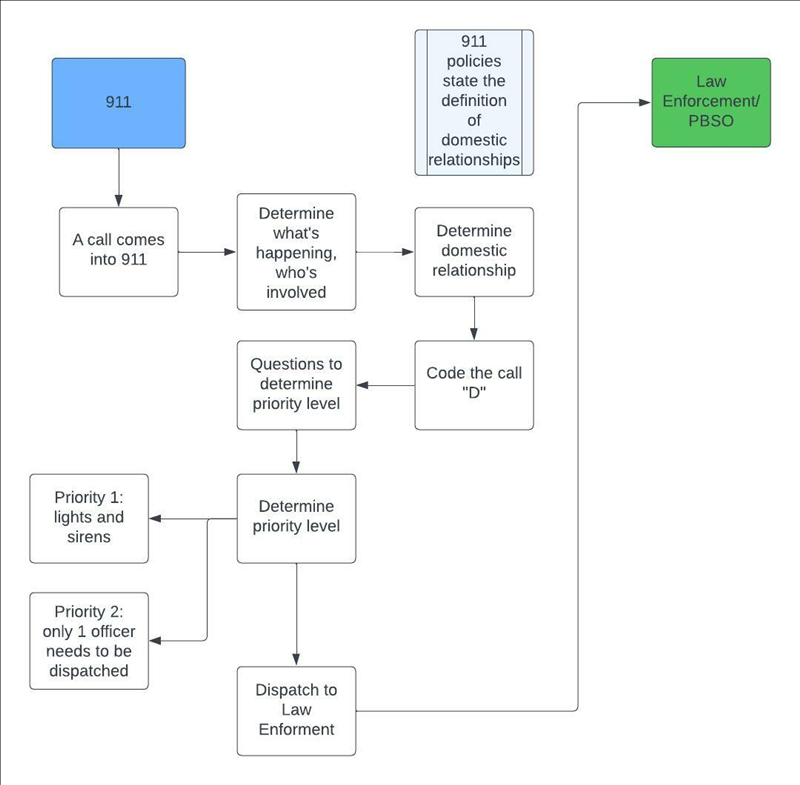

Palm Beach County CCR System Mapping 3 Part Series - Palm Beach County CCR System Mapping 3 Part Series: Feb. 10, Mar. 3, Mar. 24, 2023 1:00-3:00pm EST
- English
- Estimated Time: 6 hours 0 minutes
In support of Palm Beach County’s CCR to improve local responses to domestic violence incidents, national training and technical assistance provider, the Battered Women’s Justice Project (BWJP), is hosting a three-part series to map Palm Beach County’s criminal legal system’s response (CLS), from 911-Probation.
Mapping is a process that identifies an agency’s steps of intervention, how agencies are linked and share information with one another, how victims are connected to services, and how offenders are held accountable. BWJP will interview representatives from each CLS agency and map their response, creating a visual overview of the entire system.
• February 10, 2023, mapping of 911 and Law Enforcement.
• March 3, 2023, mapping of Victim Witness Services and Prosecution.
• March 24, 2023, mapping of Pretrial, Court, and Probation.
Free


Assisting Survivors and Their Pets During Covid-19 and Beyond - Webinar On-Demand
- English
- Estimated Time: 1 hours 30 minutes
This webinar will provide a critical review of the research, including an examination of the human-animal bond, the co-occurrence of domestic violence and pet abuse, and how the severity of pet abuse is linked to the severity of domestic violence. Existing policies that respond to the special needs arising from this relationship, such as the inclusion of companion animals on protection orders will be discussed.
The second part of the webinar will explore the options that survivors have when leaving their abusers with their pets, whether that be through temporary boarding or through shelters. Participants examine the role of veterinarians in identifying animal abuse, especially that which may be part of a cycle of violence in the home, as well as serving as, or connecting with, safe havens so victims can seek safe accommodations for their pets. Finally, the webinar will discuss accommodations Rose Brooks Center has for pets and strategies they are using to help survivors with pets during the COVID-19 crisis.
This project was supported by Grant No. 2016-TA-AX-K052 awarded by the Office on Violence Against Women, U.S. Department of Justice. The opinions, findings, conclusions, and recommendations expressed in this presentation are those of the authors and do not necessarily reflect the views of the Department of Justice, Office on Violence Against Women.
Free
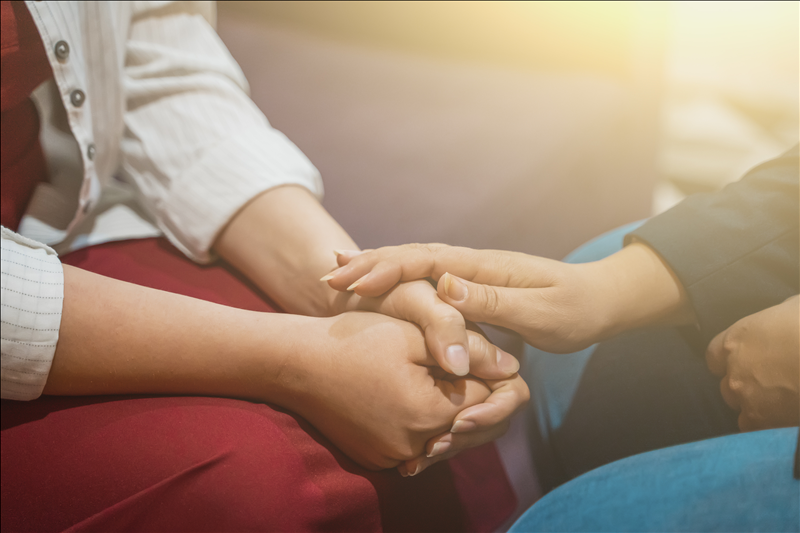

Safety for Native Women Post Castro Huerta - Webinar On-demand
- AttorneyChild Welfare System (judges, social workers, administrators, foster care, system-based victim advocates)Civil Justice System (judges, clerks, custody evaluators, 3rd party neutrals, system-based victim advocates, other)Coordinated Community Response (CCR) entitiesCriminal Justice System (clerks, prosecutors, expert witnesses, system based vicims witness specialists, other)Culturally specific community programsDomestic violence program staff (and boards, advocates, volunteers)State, tribal and/or territory sexual assault coalition and/or domestic violence coalition (staff and boards)Tribal domestic violence and sexual assault programsTribal justice system (judges, clerks, prosecutors, probation, other)Tribal law enforcementVictim/Survivor
- English
- Estimated Time: 1 hours 28 minutes
Cherokee Nation attorney Mary Kathryn Nagle will explain the implications of the Supreme Court's recent decision in Oklahoma v. Castro-Huerta with a focus on how the decision will impact issues related to domestic violence and sexual assault crimes committed against Native women and children. In June of 2022, the Supreme Court declared that the General Crimes Act did not prohibit Oklahoma from exercising criminal jurisdiction over crimes committed against Indian victims on tribal lands. The decision follows up on the Court's 2020 decision in McGirt, where the Court declared that the Mvskoke Reservation remains in existence. Both cases have huge implications for safety for Native women.
This project was supported by Grant No. 15JOVW-21-GK-02253-MUMU awarded by the Office on Violence Against Women, U.S. Department of Justice. The opinions, findings, conclusions, and recommendations expressed in this publication/program/exhibition are those of the author(s) and do not necessarily reflect the views of the Department of Justice, Office on Violence Against Women.
Free
Enforcing Firearms Prohibition in Domestic Violence Cases - Self-Paced Course
- English
- Estimated Time: 1 hours 0 minutes
This training is designed to explore the intersection of intimate partner violence and firearms; the impact on victims and others; and how surrendering firearms from those prohibited from possessing reduces intimate partner homicide. An introduction to the basic steps for developing a firearm surrender protocol are also covered.
This project was supported by Grant No. 2016-TA-AX-K047 and Grant No. 15JOVW-21-GK-02232-MUMU awarded by the Office on Violence Against Women, U.S. Department of Justice. The opinions, findings, conclusions, and recommendations expressed in this program are those of the authors and do not necessarily reflect the views of the Department of Justice, Office on Violence Against Women.
Free


Intimate Partner Violence- Understanding The Context - Self-Paced Course
- Law enforcement agencies
- English
- Estimated Time: 2 hours 0 minutes
This course has been designed for law enforcement and provides an overview of domestic violence. Officers will explore common tactics perpetrators of violence employ to control intimate partners and families; how specific neurobiological structures and physiological processes are involved in traumatic events; learn how trauma affects victims’ behavior and memory encoding and recall; and develop the skills to lead trauma-focused interviews with victims/witnesses which can yield better investigations and outcomes.
This project was supported by Grant No. 2016-TA-AX-K047 and Grant No. 15JOVW-21-GK-02232-MUMU awarded by the Office on Violence Against Women, U.S. Department of Justice. The opinions, findings, conclusions, and recommendations expressed in this program are those of the authors and do not necessarily reflect the views of the Department of Justice, Office on Violence Against Women.
Free


Enhancing Existing Partnerships to Implement Firearms Surrender - Webinar On-demand
- Attorney
- English
- Estimated Time: 1 hours 30 minutes
This webinar seeks to reimagine the typical law enforcement response to intimate partner violence through the discussion of promising practices in firearms surrender implementation. Sgt. Jordan Ferguson will focus on the importance of developing firearms surrender policies within coordinated community responses while also addressing the common challenges and methods to overcoming hurdles.
Free
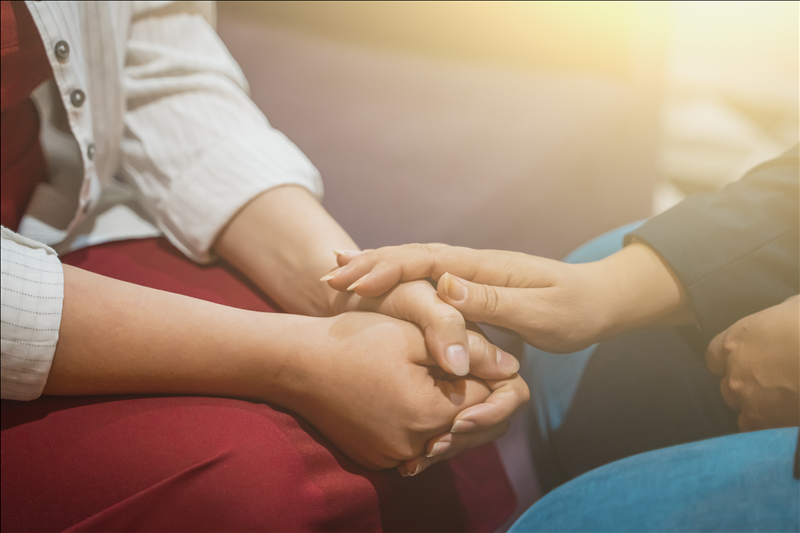

Domestic Violence and Gun Violence: Co-Existing Public Health Crises - Webinar On-Demand
- Attorney
- English
- Estimated Time: 1 hours 0 minutes
Firearm violence and domestic violence are public health crises in the United States. In 2020, there were over 45,000 firearm deaths in the U.S. and twice as many nonfatal firearm injuries. Access to firearms increases the risk of homicides, suicides, and unintentional injuries, including domestic violence injuries and fatalities. Presenters will share creative policies and strategies to prevent and reduce the risks associated at the intersection of partner violence and guns, including domestic violence protection orders and extreme risk protection orders.
This project was supported by Grant No. 15JOVW-21-GK-02253-MUMU awarded by the Office on Violence Against Women, U.S. Department of Justice. The opinions, findings, conclusions, and recommendations expressed in this publication/program/exhibition are those of the author(s) and do not necessarily reflect the views of the Department of Justice, Office on Violence Against Women.
Free


Guardians ad Litem: Peer to Peer Forum - 2023-2024 Discussions and Quarterly Calls
- AttorneyDomestic violence program staff (and boards, advocates, volunteers)Mental Health professionals
- English
- Estimated Time: 1 hours 0 minutes
BWJP, in partnership with NCJFCJ, has created an online peer to peer forum for Guardians at Litem. Do you serve as a Guardian ad Litem (GAL)? Are you an attorney or advocate who works with GALs? Guardians ad litem serve the best interests of the children in family court proceedings, as well as civil protection order cases. Their reports and recommendations to the court carry a lot of weight - but what happens when the recommendations don’t serve the best interests of the children and victim-parent? In this peer to peer forum, instructors will facilitate a discussion around GAL emerging issues, best practices, and steps to improve outcomes for children and victim-parents when working with appointed GALs. There will be live Zoom calls, discussion boards, and shared resources.
The live Zoom drop in calls for this year will be held at 3pm CT/4pm ET on:
September 20, 2023
December 13, 2023
March 20, 2024
May 24,2024
June 26, 2024
July 24, 2024
August 21, 2024
September 25, 2024
This project was supported by Grant No. 15JOVW-22-GK-04032-MUMU awarded by the Office on Violence Against Women, U.S. Department of Justice. The opinions, findings, conclusions, and recommendations expressed in this publication/program/exhibition are those of the author(s) and do not necessarily reflect the views of the Department of Justice, Office on Violence Against Women.
Free


Domestic Violence-Related Mass and Spree Killings - Webinar On-demand
- English
- Estimated Time: 1 hours 30 minutes
The first consists of cases where the complex dynamics of domestic violence appear to be the principal precipitant of the killings. The second involves public mass killings, usually shootings, where domestic violence is just one aspect of the case, but may be central to developing an understanding of the killings. Dr. Websdale uses case illustrations to flesh out themes across case types, including the gendering of these offenses, the signaling of offenses, histories of intimate terrorism, planning and more.
This project was supported by Grant No. 2016-TA-AX-K047 awarded by the Office on Violence Against Women, U.S. Department of Justice. The opinions, findings, conclusions, and recommendations expressed in this program are those of the authors and do not necessarily reflect the views of the Department of Justice, Office on Violence Against Women.
Free


Centering the Experiences of Afro Latinas - Webinar replay
- English
- Estimated Time: 4 hours 30 minutes
This webinar will go over the report, A call to action for inclusive gender-based violence services for Black/Afro-Latin@s, that was created in collaboration between Yvette Modestin, Anne Hernandez, and Esperanza United.
Free


Why counting AfroLatin@s matters - Why counting AfroLatin@s matters
- Community organizerCulturally specific community programsDomestic violence program staff (and boards, advocates, volunteers)Educators (teachers/faculty from elementary through college) and school/campus personnelHealth professionals (excluding forensic examiners)Housing agencies and transitional housing programs (non-DV focused)Immigrant organizations (non-governmental)JudgesLaw enforcement agenciesLGTBQ community organizationsMental Health professionalsOther underserved communitiesProsecutorsSexual assault forensic examinersVictim/Survivor
- English
- Estimated Time: 4 hours 25 minutes
On April 5 2023, Esperanza United hosted a discussion about recognizing the importance of race in our community, “Why Counting AfroLatin@s Matters,” convening community leaders and academics who have dedicated their activism, careers and research to racial justice and the inclusion of Blackness in the Latin@ community. Grant: Health and Human Services (HHS)
Free
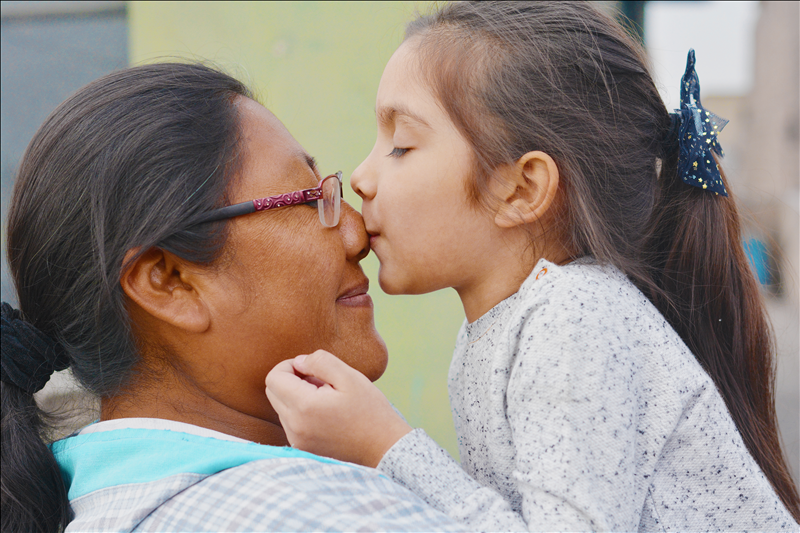

Sexual assault awareness month with Mujeres Latinas en Acción - Conversations over a Cafecitio (Podcast): Sexual assault awareness month with Mujeres Latinas en Acción
- Culturally specific community programsSexual assault programs and coalitionsVictim/Survivor
- Spanish
- Estimated Time: 0 hours 34 minutes
April is Sexual Assault Awareness Month. In this installment of Conversations over Cafecito, Aida Negrón, Bilingual Communications Specialist at Esperanza United, conducts an interview with Rocio Lozano, the Director of the Sexual Assault Program at Mujeres Latinas en Acción, to discuss this important topic.
Rocío Lozano, de Mujeres Latinas en Acción, define el asalto sexual y habla sobre las formas comunes del mismo, además de abordar los mitos y conceptos erróneos comunes sobre el asalto sexual y cómo superarlos. Lozano también discute los desafíos que pueden enfrentar l@s sobrevivientes latin@s de asalto sexual al denunciar y acceder a servicios, así como los efectos a corto y largo plazo del asalto sexual en sobrevivientes, particularmente las mujeres latinas. Grant: HHS
Free


Understanding Civil Restraining Orders: Domestic Violence, Extreme Risk Protection Orders, and More - Understanding Civil Restraining Orders: DV, ERPOs and More
- AttorneyCivil Justice System (judges, clerks, custody evaluators, 3rd party neutrals, system-based victim advocates, other)Criminal Justice System (clerks, prosecutors, expert witnesses, system based vicims witness specialists, other)
- English
- Estimated Time: 2 hours 0 minutes
Training for legal services professionals
protection orders, firearms, domestic violence
Free


Trauma-Informed Advocacy Part I and II - Webinar On-demand
- English
- Estimated Time: 0 hours 8 minutes
Sarah Super, Training & Curriculum Specialist at BWJP, explains the basics of trauma-informed advocacy in the first of two videos. Super explains what advocates can do to provide victims/survivors the choices, compassion, and accountability they deserve.
Sarah Super, Training & Curriculum Specialist at BWJP, explains the basics of trauma-informed advocacy in the second of two videos. Super explains what advocates can do to provide victims/survivors the choices, compassion, and accountability they deserve.
Free
Court Watch Montgomery: A Report on Protective Order Outcomes - Webinar replay
- AttorneyChild Welfare System (judges, social workers, administrators, foster care, system-based victim advocates)Civil Justice System (judges, clerks, custody evaluators, 3rd party neutrals, system-based victim advocates, other)Court personnel (clerks, administrative staff)Domestic violence program staff (and boards, advocates, volunteers)JudgesVictim-witness specialistsVictim/Survivor
- English
- Estimated Time: 1 hours 0 minutes
Join us for a conversation on the impact of court watch programs on domestic violence protection order hearings. Leslie A. Hawes, the Executive Director of Court Watch Montgomery, will discuss the organization’s work in civil protective orders and criminal intimate partner violence hearings in Montgomery County, Maryland. She will also discuss the results of their latest 2022 Report-Protection Order Outcomes.
This project was supported by Grant No. 15JOVW-21-GK-02253-MUMU awarded by the Office on Violence Against Women, U.S. Department of Justice. The opinions, findings, conclusions, and recommendations expressed in this publication/program/exhibition are those of the author(s) and do not necessarily reflect the views of the Department of Justice, Office on Violence Against Women.
Free


Minnesota Advocates: Using the SAFeR Approach to Assist Survivors and Their Children - Minnesota Advocates: Using the SAFeR Approach to Assist Survivors and Their Children
- Domestic violence program staff (and boards, advocates, volunteers)
- English
- Estimated Time: 1 hours 30 minutes
The live training for Minnesota advocates occured on January 24th, 2024. A recording of the training will be posted shortly. Registering for the training, even after-the-fact, provides convenient access to the recording and materials. In this training, Tracy Shoberg, J.D., provided an overview of the SAFeR Approach and ways you can use the approach in your legal advocacy work with survivors.
Free


Probation & Parole Strategies to Disarm DV Offenders - Webinar Replay
- AttorneyCommunity organizerCivil Justice System (judges, clerks, custody evaluators, 3rd party neutrals, system-based victim advocates, other)Coordinated Community Response (CCR) entitiesCorrections System (probation, parole, and correctional facilities)Court personnel (clerks, administrative staff)Criminal Justice System (clerks, prosecutors, expert witnesses, system based vicims witness specialists, other)Domestic violence program staff (and boards, advocates, volunteers)JudgesLaw enforcement agenciesNGOProsecutorsState, tribal and/or territory sexual assault coalition and/or domestic violence coalition (staff and boards)Tribal domestic violence and sexual assault programsTribal justice system (judges, clerks, prosecutors, probation, other)Tribal law enforcementUniversity/campus administrators and campus policeVictim-witness specialists
- English
- Estimated Time: 1 hours 30 minutes
This interactive workshop will provide an overview of firearm surrender protocols that have been implemented in various settings across the country. There are three types of this protocol: court-centered, front line law enforcement-centered, and probation-centered. Although this workshop emphasizes the probation centered protocol, it is not intended for probation agents exclusively. It is instead intended to explore the strengths of probation centered firearm surrender protocols, especially in collaboration with the legal system overall. It is therefore intended to address law enforcement, the judiciary, domestic violence advocates, prosecutors, and probation officers through civil and criminal justice protocols and how all these team members can work together. In addition to statistical research, the presenter also explores the practical application of surrender protocols as well as practical tips on implementing firearm surrender protocols in your community utilizing either federal or state law to your benefit.
Free
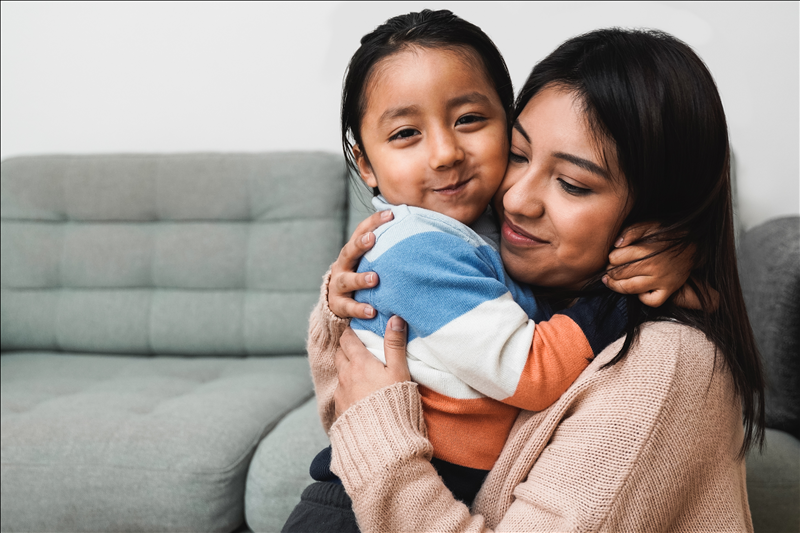

Podcast con nuestra Directora de apoyo de las familias - Podcast con nuestra Directora de apoyo de las familias
- Child Welfare System (judges, social workers, administrators, foster care, system-based victim advocates)Community organizerCulturally specific community programsDomestic violence program staff (and boards, advocates, volunteers)General PublicImmigrant organizations (non-governmental)LGTBQ community organizations
- Spanish
- Estimated Time: 0 hours 20 minutes
A medida que nos acercamos al final del Mes de la Historia de la Mujer, le invitamos a escuchar un nuevo episodio de nuestro podcast, Conversation Over Cafecito. En este episodio, hablamos con nuestra Directora de apoyo a las familias, Rosario de la Torre, quien ha estado trabajando en Esperanza United por más de veinte años sobre cómo su rol ha inspirado liderazgo en la comunidad.
Free


Seguir Adelante: Un Recurso Para El Empoderamiento Financiero - Curso a su propio ritmo
- Domestic violence program staff (and boards, advocates, volunteers)Victim/Survivor
- Spanish
- Estimated Time: 4 hours 0 minutes
Seguir Adelante cubre diversos temas financieros importantes, como la creación de un presupuesto, el manejo de deudas y la mejora del historial crediticio. Se ha demostrado que ayuda a las supervivientes a pasar de la seguridad a corto plazo a la seguridad a largo plazo. Puede completar los módulos de este curso a su propio ritmo en cualquier orden. El proceso de inscripción se mostrará en el idioma en el que esté configurado su navegador. Después de inscribirse, utilice el menú de la izquierda y seleccione el hipervínculo junto al icono de la pantalla del ordenador para acceder a cada sección del curso.
Si le preocupa la privacidad o la seguridad, aquí tiene información que debe tener en cuenta antes de inscribirse. El campo del nombre tiene un mínimo de 1 carácter, por lo que puede utilizar sus iniciales si es necesario por motivos de seguridad. Se requiere una dirección de correo electrónico que pueda recibir un código de verificación único. Puede crear un correo electrónico anónimo de un solo uso en https://www.guerrillamail.com/. Proton Mail es una opción para crear una cuenta de correo electrónico permanente y cifrada: https://proton.me/mail. Si no desea compartir o no está afiliada a una organización, puede colocar N/A en el campo de la organización. Si tiene alguna pregunta, por favor, envíe un correo electrónico a info@ngbvlc.org.
Free


An Introduction to Working with Criminalized Survivors - Self-Paced Course
- Domestic violence program staff (and boards, advocates, volunteers)
- English
- Estimated Time: 0 hours 45 minutes
In this course, you will gain foundational knowledge and skills related to defense-based advocacy.
The funding for this project was made available through the US Department of Health and Human Services, Grant #90EV0528. The viewpoints contained in this document are solely the responsibility of the author(s) and do not represent the official views or policies of the department and do not in any way constitute an endorsement by the Department of Health and Human Services.
Advocacy Defense-Based Advocacy
Free


Moving Ahead: A Financial Empowerment Resource - Self-Paced Course
- General PublicVictim/Survivor
- English
- Estimated Time: 4 hours 0 minutes
Moving Ahead covers a variety of important financial topics, including budgeting, managing debt, and improving credit. It has been proven to help survivors move from short-term safety to long-term security. You can complete the self-paced modules of this course in any order. After registering, use the menu on the left and select the hyperlink next to the computer screen icon to access each section of the course. In 'Course Resources' you will find a printable, PDF version of the course.
If you have privacy and/or safety concerns, here's some information to consider before registering. The name field has a 1-character minimum so you may use your initials if needed for safety purposes. An email address that can receive a one-time verification code is required. You can create a one-time use, anonymous email at https://www.guerrillamail.com/. Proton Mail is an option for creating a permanent, encrypted email account: https://proton.me/mail. If you do not wish to share or are not affiliated with an organization, you can enter N/A in the organization field. If you have questions, please email info@ngbvlc.org
Free
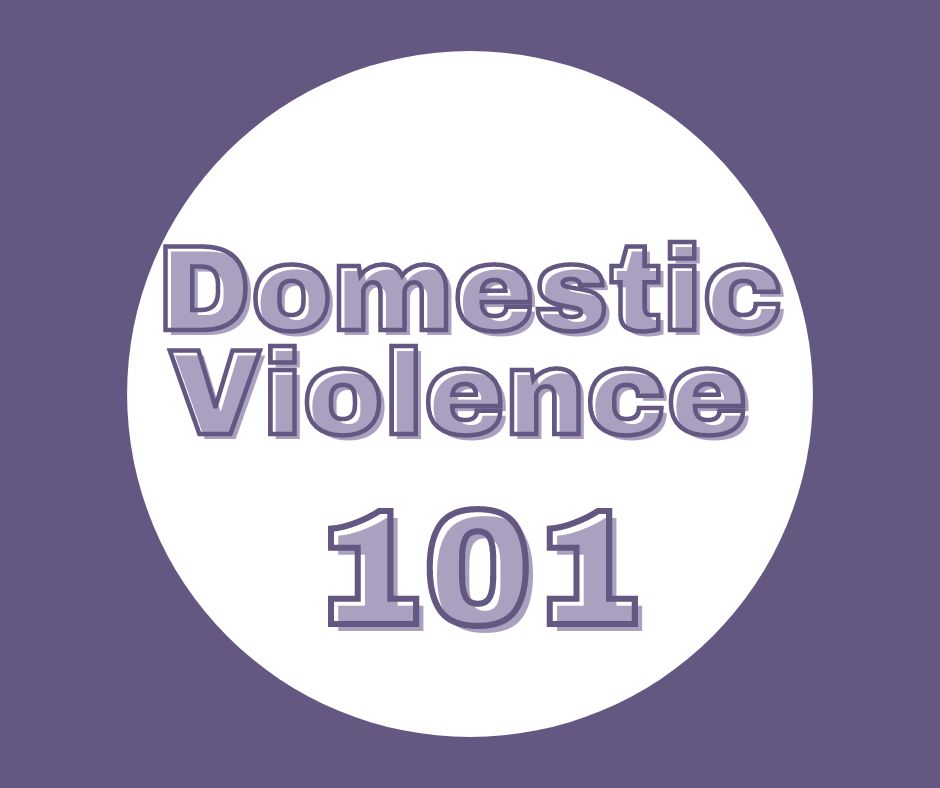

Domestic Violence 101 - Self-Paced Course
- AttorneyCommunity organizerCorrections System (probation, parole, and correctional facilities)Court personnel (clerks, administrative staff)Culturally specific community programsDisability rights/Deaf organizationsEducators (teachers/faculty from elementary through college) and school/campus personnelEmployersFaith based/spiritual leaders/organizationsGeneral PublicHealth professionals (excluding forensic examiners)Immigrant organizations (non-governmental)LGTBQ community organizationsMilitary personnel/Family advocacy personnelNGOOther underserved communitiesVictim/Survivor
- English
- Estimated Time: 0 hours 45 minutes
In this course, you will learn foundational knowledge about domestic violence. You will learn about the scope and impact of domestic violence, types of abuse, common tactics used, the cultural contexts of domestic violence and ways to effectively support someone who is experiencing abuse. NGBVLC's Domestic Violence 101 course was collaboratively developed by experts from The National Domestic Violence Hotline, the Asian-Pacific Institute on Gender-Based Violence, Esperanza United and BWJP.

